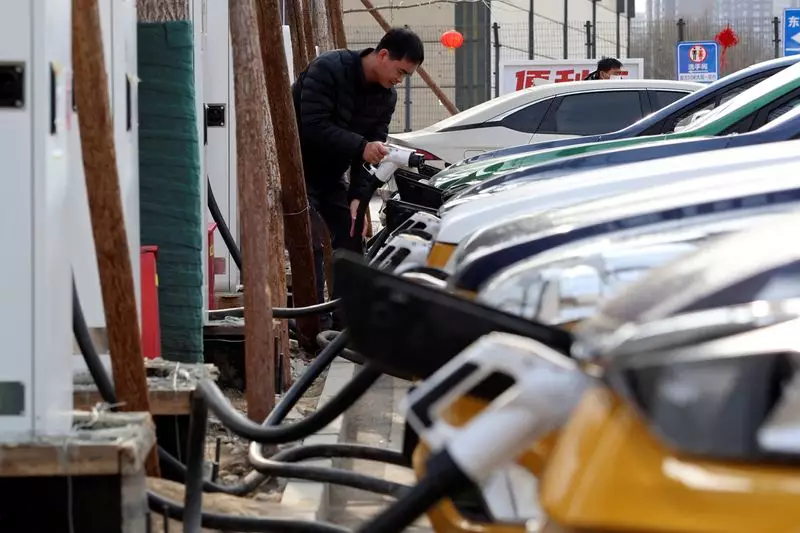The recent decision by the European Union to impose tariffs on Chinese electric vehicles has sparked a wave of opposition from China and other key players in the automotive industry. Beijing has expressed hope that the EU will reconsider its decision and avoid further escalation in what they consider to be the wrong direction. The move by the EU to impose additional duties ranging from 17.4% to 38.1% on imported Chinese electric cars has raised concerns about the impact on Chinese manufacturers, prompting calls for a resolution to avoid new costs and potential trade disputes.
China has stated its intention to take measures to safeguard its interests following the EU’s announcement of additional tariffs on Chinese electric vehicles. The EU’s decision comes in the wake of similar actions by the United States, which revealed plans to quadruple duties on Chinese EVs to 100%. This move has intensified the pressure on Chinese automakers, who are grappling with challenges such as overcapacity and subsidized exports that threaten overseas competitors. The tariffs not only pose a threat to the growth of the electric vehicle industry but also risk undermining climate change goals and increasing costs for consumers.
Despite the EU’s decision to impose tariffs on Chinese electric vehicles, the response from Chinese EV maker stocks has been mixed. While some companies, such as BYD, have experienced a surge in share prices, others like SAIC Motor have seen a decline. The uncertainty surrounding the tariffs has raised concerns about the future of Chinese electric vehicle exports to Europe and the potential impact on consumer pricing. Analysts predict that Chinese automakers may need to pass on some of the cost increases to consumers, but do not consider it a fatal blow to the industry.
China’s auto industry, a blend of state-owned and private companies, has inherent cost advantages over foreign competitors due to government subsidies and its dominant position in battery-minerals refining. The hypercompetition in China’s EV market has driven companies to innovate and reduce costs, making them competitive in the global market. However, the EU’s decision to impose tariffs on Chinese electric vehicles threatens to disrupt this dynamic and create challenges for Chinese automakers seeking to expand their presence in Europe.
While Chinese automakers are grappling with the impact of EU tariffs, European automakers are also facing challenges. The influx of lower-cost EVs from Chinese rivals has put pressure on European automakers, but there is little support for tariffs within the continent’s auto industry. Major players like BMW, Volkswagen, Stellantis, and Mercedes Benz have voiced concerns about the potential backlash from Beijing and fear of retaliation. With European automakers heavily reliant on sales in China and importing Chinese-made vehicles themselves, the tariffs could have far-reaching consequences for the industry.
The EU’s decision to impose tariffs on Chinese electric vehicles has sparked a debate over its potential impact on the global automotive industry. While China seeks a reconsideration of the tariffs to avoid further escalation, European automakers are wary of the implications for their own operations. The outcome of this situation remains uncertain, but both sides are looking for a resolution to prevent further trade disputes and safeguard their interests in the evolving electric vehicle market.

